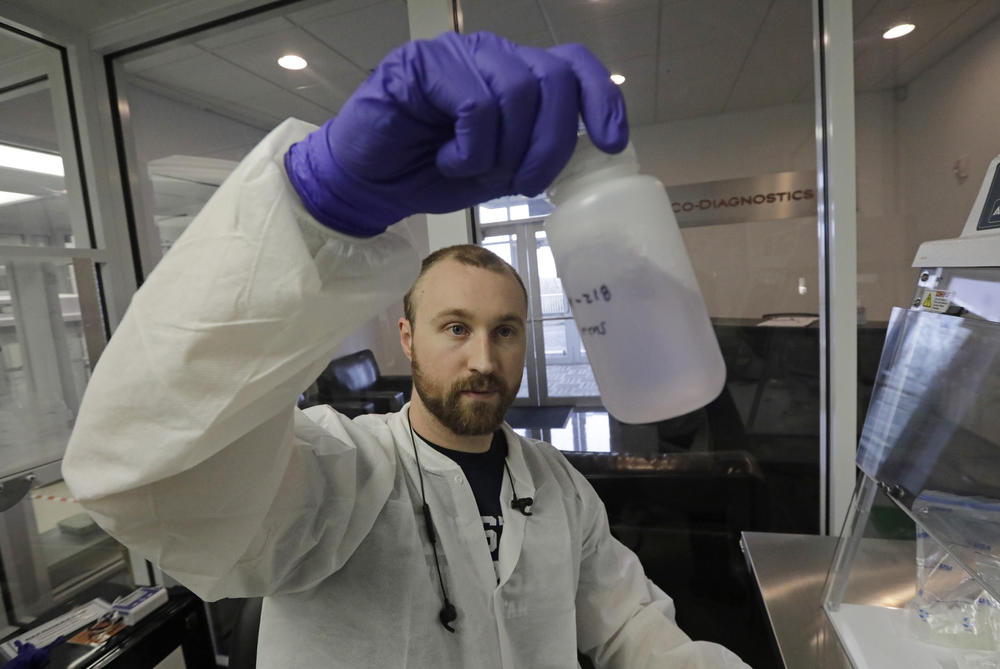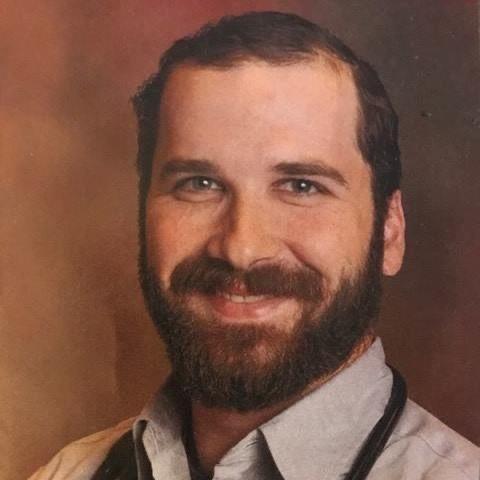Section Branding
Header Content
After Negative Result, Doctor Suspects He Cleared Virus Before He Could Get Tested
Primary Content
Dr. Zachary Cohen could not get a test for what he suspected was the coronavirus until after he'd been sick for two weeks.
"My [doctor] and I both believe that this means I had cleared the virus from my nose by the time testing could be arranged," Cohen said Sunday.
A colleague of Cohen's shared one of three test kits she had for her private practice after Cohen posted on Facebook he'd been unable to get tested — despite hearing health care workers were supposed to have priority for testing.
As of Sunday, the only way Americans can get tested is at hospitals, clinics or drive-thru sites, with a doctor’s order. Last week, federal officials said total tests topped 1.4 million, and labs are processing nearly 100,000 tests daily. But that’s the threshold many experts say is needed to track the virus, according to the Associated Press.
The 34-year-old double board-certified physician said he started feeling ill Friday, March 13.
PREVIOUS COVERAGE: Local Doctor Describes His Trouble Getting Tested For COVID-19
Cohen is the father to a 22-month-old daughter. He said his symptoms started with a scratchy throat and feeling winded while carrying his daughter down stairs, but he soon felt feverish. Cohen called out of work that Monday, March 16.
Both he and his baby daughter grew sicker that week.
One of the worst symptoms of COVID-19, he said, were paroxysms of coughing—meaning the doctor coughed so much a new cough started before the last finished. Cohen described it as a chain-reaction.
“It's a little bit scary toward the end, when you start running out of oxygen and start getting lightheaded and wonder when the next breath is going to be,” he said. “That happened to me probably a dozen times over the course of my illness.”
When he started making calls about getting a test for COVID-19, Cohen called his primary doctor, who was with a local academic hospital system. A nurse line established to determine whether patients met testing criteria asked Cohen if he had chemotherapy or a bone marrow transplant in the last year and whether he was currently taking immunosuppressant drugs.
When he answered “No,” he got his answer as well.
“We're only testing our employed health care workers and our patients that have answered yes to one of those three questions,” the nurse told Cohen.
He then called private labs, queried friends in the medical community and talked with patients who had been tested.
MORE: Atlanta Couple From Diamond Princess Donates Blood For Coronavirus Vaccine, Cure
“Then I called the CDC, who referred me to the state health department,” he said. “I called the state health department and they referred me back to my primary care doctor. So that completed the circle.”
Wednesday night, March 25, Cohen broke down and decided to tell his story via Facebook.
The following day he took a test provided by a colleague.
Cohen waited 10 days to learn the results of the test he took more than two weeks after feeling ill: negative.
And many people like Cohen will either never be tested or be tested too late to know for sure whether they had COVID-19. The next step Cohen and his doctor plan to take is figuring out immunological blood testing, he said.



